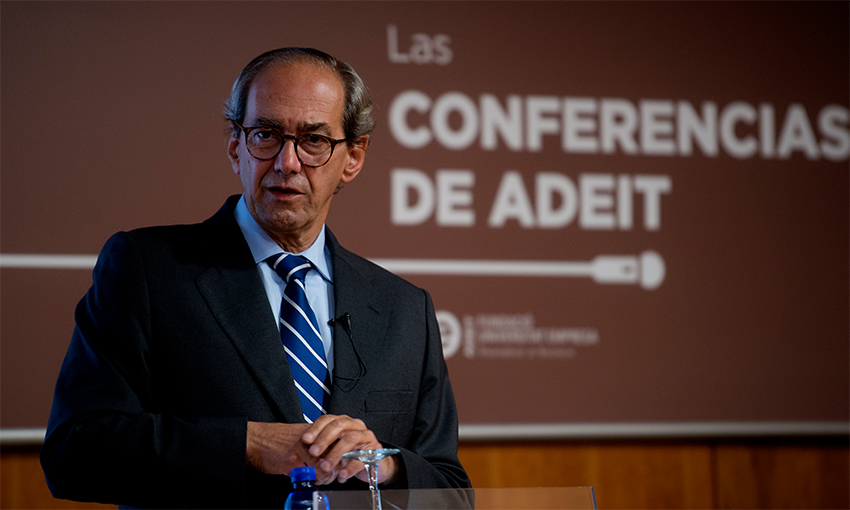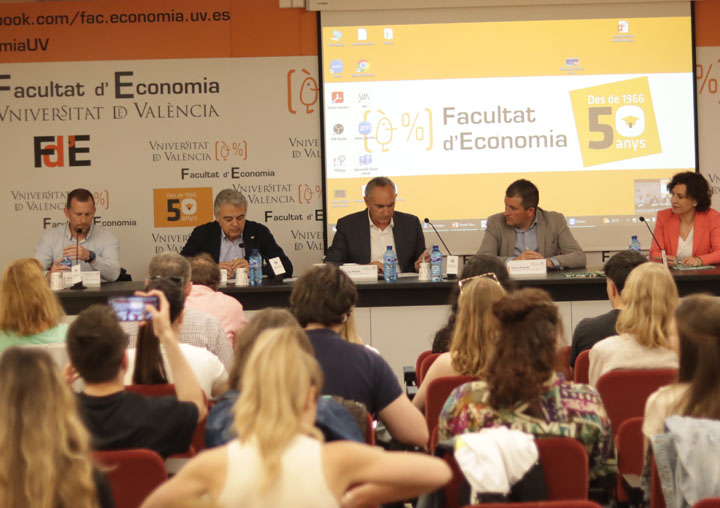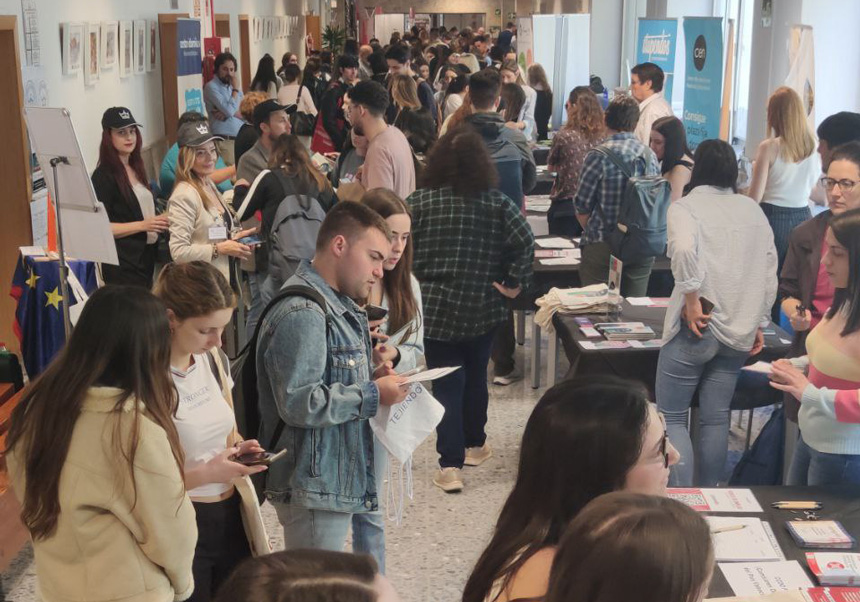González-Páramo states: ‘the European institutions have to get closer to the citizens’
- Central administration. ADEIT foundation
- September 27th, 2017

The recent German elections have closed the electoral cycle this year in Europe. With the Euroscepticism in the ballot boxes, the European Union has to ‘bring the European institutions closer to the citizens’. The Europeans must feel that they are choosing, participating, having influence and understanding the European rules’ stated José Manuel González-Páramo, executive director of the bank BBVA, in a talk about ‘The new Europe: challenges and opportunities’ organised by ADEIT University-Business Foundation.
José Manuel González-Páramo believes that the decision making process in the European Union must be more transparent and with a better communication. In his talk in València, the executive director of the BBVA highlighted that after two years in which ‘Europe has been put to the test, we have an open window to move towards a greater European integration’. In his opinion, the key for those countries that form the European Union is to face the current challenges with a common effort so they can recover the public opinion’s trust.
‘Besides, the European authorities must redirect the new concerns that have arisen in the citizens’, he emphasised. Among them there are safety, borders, defence, globalisation and climate change. In this sense ‘it is essential to explain that the globalisation is positive’. For this reason, ‘the EU has to keep fostering trade agreements with the global major markets as well as protecting these sectors strategic for their economy and citizens’. Furthermore, the executive director of the BBVA asked Europe to continue implementing the Paris protocols about climate change and improvement of energy efficiency.
Likewise, he attracted the attention to the ‘social and economic gap between states’. This divergences, explained, difficult the economy management, the equitable growth in the euro area and the agreement on the common interests of Europe.
2017, electoral year
The executive director of the BBVA recalled that the year 2017 has been very intense, since in key countries such as The Netherlands, France and Germany (three of the six founders of the European Union) existed a real threat: political parties with opposite aspirations could reach important politic positions. But the Euroscepticism has only been one of the intern risks of Europe. The migrations and the brexit must be added.
However, he highlighted, this situation has improved during the last months. To the electoral results favourable to Europeanism must be added that the negotiations of the brexit have been addressed from the unit and that the Court of Justice of the European Union has ruled in favour of a fair distribution of refugees in European countries. And, above all, the most important countries of the Union, including Spain, work with renewed boost to raise the level of European integration.
In his opinion, Europe is a bit more optimistic than some months ago. Consequently, he stated, a new window opens to face the challenges to move towards a greater European integration: ‘now we have to reflect on the type of Europe we want for the future’.
After his speech, González-Páramo began a discussion with Javier Andrés, Professor of Economic Analysis at the Universitat de València and Rafael Juan, CEO of Dulcesol, who accompanied the speaker during the conference. As chairman of the ADEIT University-Business Foundation, Juan Manuel Pérez-Mira wanted to highlight the role of ADEIT as a "meeting point between members of the Valencian business sector and the Universitat", while emphasising the importance of addressing issues of maximum relevance as is the future of Europe. This session is framed within the ADEIT University-Business Foundation Conferences, a cycle of discussions related to the business sector and the university community.
File in: Fundació Universitat - Empresa ADEIT















